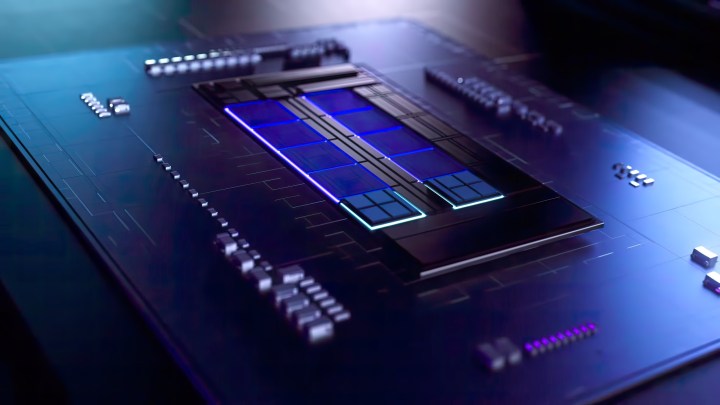Intel’s 13th generation of processors, dubbed Raptor Lake, may be closer than we thought. A new rumor pinpoints the release date as October 2022, and the rumored specifications are exciting, with frequencies as high as 5.8GHz.
It also appears that Intel might be launching the next-gen Sapphire Rapids server processors alongside Raptor Lake. What else can we learn from this latest round of leaks?

These new tantalizing Intel Raptor Lake details come from a reliable source: A Bilibili user previously known as Enthusiast Citizen, who has now rebranded to “ECSM_Official.” Although this user has a proven track record when it comes to PC hardware leaks, nothing is certain until Intel itself confirms it. However, there’s plenty to be hyped about in the information shared by ECSM today.
While we’ve known that Intel is preparing both mainstream and HEDT chips for the near future, it now seems that both of these lineups will launch in October. Intel HEDT is Intel’s family of high-performance chips used in servers, data centers, and other use cases that are much more resource-heavy than regular day-to-day use. This upcoming generation will be called Sapphire Rapids and will be branded as the Xeon W-3400 and Xeon W-2400. Most of us will be more familiar with the Intel Raptor Lake-S CPUs that will probably pop up on our list of the best Intel processors later this year.
According to ECSM, Intel Raptor Lake-S will still offer the dual DDR5 and DDR4 compatibility we know from Alder Lake. This could give the new platform an edge over AMD because Ryzen 7000 processors will only support DDR5 memory, which is still quite expensive, but AMD expects that to change in the near future. They will also retain compatibility with existing 600-series motherboards. Alongside the new chips that are now said to launch in October, new 700-series chipsets will start appearing. We can expect to see the high-end Z790 in October and the H770/B770 in the first quarter of 2023.
Based on what we know so far, we can piece together quite a clear image of the Raptor Lake chips. The processors will retain the hybrid design we know from Alder Lake and will be based on the Intel 7 process node. The performance (P) cores will be upgraded from Golden Cove to Raptor Cove, and the efficiency (E) cores will receive a boost in cache size. The core count will be increased and will now max out at 24 cores (eight P-cores and 16 E-cores) and 32 threads.

The clock speeds on Intel Raptor Lake are rumored to hit new heights, reaching as high as 5.8GHz on some of the top-end chips. Further overclocking could push those numbers even further. Despite the improvements, the TDP is supposed to remain roughly the same, but whether that will really be the case still remains to be seen. The combined cache size is also said to be receiving a massive upgrade and could be as large as 68MB.
Moving on to Intel Sapphire Rapids, also slated for an October 2022 launch, it seems that the lineup will be segmented into a mainstream range and a premium/expert range, both supported by the new W790 chipset. The “expert” lineup could offer up to 56 cores and 112 threads, 112 PCIe Gen 5 lanes, 8-channel DDR5 memory, and possibly, dual-socket motherboards. The mainstream range takes things down a notch, maxing out at 24 cores and 48 threads, with clock speeds reaching up to 5.2GHz. Other features include 64 PCIe Gen 5 lanes and 4-channel DDR5 memory.
Wccftech was the first to spot the leak on Bilibili and share some extra Raptor Lake details. Seeing as AMD is also planning to release its next-gen Zen 4 processors around the same time, we’re in for a real battle of the giants — and that’s pretty great, especially given the fact that for the better part of the past two years, it was a seller’s market. Some competition for the customers’ attention will be a nice change from the high prices and shortages we’ve all grown used to by now.
Editors' Recommendations
- It just became the perfect time to buy a last-gen Intel CPU
- Intel’s CPUs just got way more confusing
- Intel may have accidentally leaked the release date for Windows 12
- Intel Meteor Lake is coming to desktop, but there’s a big catch
- Intel’s 14th-gen Raptor Lake refresh might be a major disappointment




